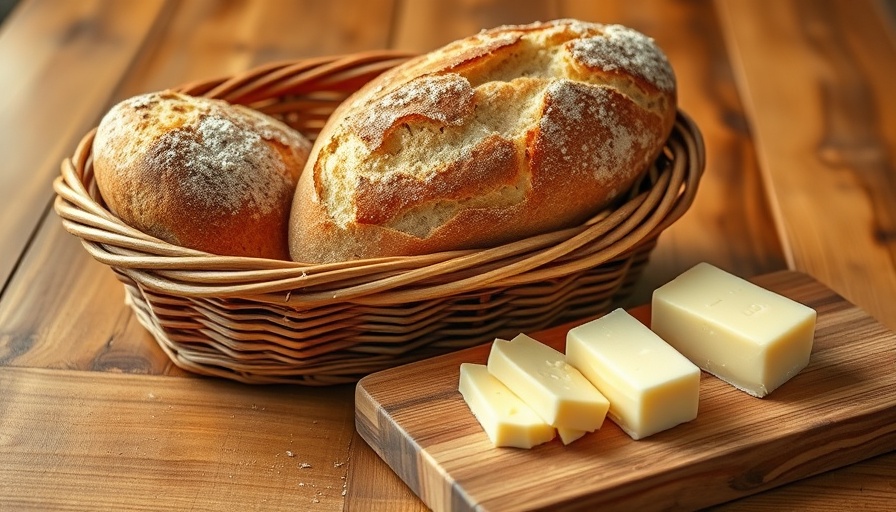
Is Bread Before Meals Bad for You?
In many countries, the practice of serving bread before meals is not just common; it has become a culinary expectation. In restaurants, guests are often greeted with a basket of bread, which raises an intriguing question: does eating bread before your meal enhance or detract from your dining experience?
The Psychology of Bread
From a psychological standpoint, having bread before the main meal can activate our senses, opening the appetite for the feast to come. However, some experts highlight potential downsides. According to nutritionist Pascalle Stijger, although a small amount of bread may not lead to significant calorie intake, filling up on bread can indeed alter your hunger signals. When bread fills your stomach, you'll be less likely to indulge in the main dish, minus the delightful flavors of your meal.
Nutrition Matters: Choosing Wisely
Not all bread is equal. Opting for whole grain or fiber-rich specialties can help satiate your appetite more effectively than their white bread counterparts. The fibers present in whole-grain products contribute to a feeling of fullness, thus reducing the chances of overeating at the dinner table. If you want to stay mindful of your diet while dining out, consider starting with a salad or a vegetable-based dip alongside whole grain bread.
Reducing Food Waste: A Cultural Perspective
In many cultures, especially in Europe, bread serves a dual purpose: it not only complements the meal but also acts as a tool to prevent food wastage. Italians, for instance, often use bread to savor those last delectable remnants of sauce on their plate. This practice reflects a cultural respect for food, emphasizing its value and the importance of minimizing waste. Thus, the act of eating bread can be about more than just taste—it's about indulging in a meal while honoring the ingredients that created it.
Creating Your Own Dining Experience
When you're hosting a dinner, eager to provide a wholesome yet enticing menu, consider incorporating homemade spreads with your whole grain bread. Options like muhammara or spicy avocado spread can elevate the bread experience and offer a health-conscious alternative to creamy, high-calorie dressings. Pairing raw vegetables with hummus also infuses your gathering with vibrant flavors, while allowing you and your guests to enjoy a nutritious start to the evening.
Understanding the Balance
It's vital to find a balance in your dietary choices. While bread can be an enjoyable addition to your meal, it's essential to ensure that it doesn't negatively impact your overall consumption of other vital nutrients. Starting your meal with vegetable-rich appetizers not only enhances your dietary fiber intake but also aids digestion and keeps your energy levels elevated. This balanced approach allows you to enjoy all aspects of your dining experience without compromising your health goals.
Takeaway: Mindful Eating Habits
As we navigate the intricacies of our eating habits, being aware of how and when we consume our food can have a lasting impact on our health. Adopting mindful eating practices such as choosing whole grain options, starting with a vegetable-rich course, and savoring your meals not only benefits your physical health but also enhances your overall dining experience. Remembering that bread can be both a delightful addition and a potential pitfall is a vital step toward better meal management.
Ultimately, whether you're dining out or hosting a gathering, embracing healthy choices and being aware of portion sizes will pave the way to enjoying a nutritious and fulfilling meal.
 Rij toevoegen
Rij toevoegen






 Rij toevoegen
Rij toevoegen



Write A Comment